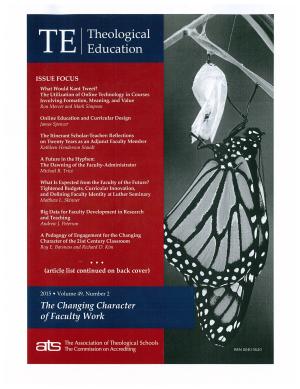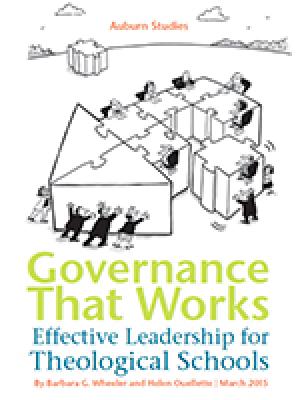Resources

Journal Issue.

Journal Issue. Full text is available online.

Journal Issue.

Journal Issue.
A special report featuring 12 articles from Online Classroom examining methods of online assessment and common assessment mistakes to avoid.

Journal Issue. Full text is available online.

Journal Issue.
Nine contributors to the Wabash Center's “Race Matters” blog (https://www.wabashcenter.wabash.edu/category/race-matters-in-the-classroom/) provide short teaching tactics they have used to help students engage difference in meaningful ways. 

Journal Issue.

With this report, Barbara G. Wheeler ends a long and distinguished era as a lead researcher and author for the Auburn Studies series, the signature line of publications from the Center for the Study of Theological Education (CSTE). Beginning with Reaching Out (1993) which set a focused and extraordinarily generative vision for the CSTE, Wheeler went on to author or co-author fourteen of the twenty studies in this series. These studies engaged many of the issues central to theological schools and their stakeholders: studies of enrollment and student debt, student recruitment and alumni success, and the status of faculties and senior leadership—both presidents and governing boards. With these and many other publications, lectures, and consulting projects, Wheeler established Auburn as a respected source for those wanting to understand the dynamics of this very particular set of institutions of higher education which prepare faith leaders for their vocations. Governance That Works: Effective Leadership for Theological Schools exhibits Barbara Wheeler’s characteristically clear prose and keen insight readers of past Auburn Studies have come to expect. At a time when many theological schools are experiencing significant challenges, the report helpfully exegetes several schools as notable cases of effective governance. In general, the story is one of gradual change towards better governance policy and practice. Yet many boards struggle with improving board composition—including minority and gender inclusion but also people with the right skills and a capacity to be substantial donors to the school. Among a number of notable trends, the increasing power of chief executives—with generally strong support from their faculty and boards—greatly heightens the salience of interpersonal skills on the part of those executive leaders. In a related insight, the report shows how such an interpersonally wise senior executive develops stronger leadership within the faculty and board, and a more vital partnerships between the two. (Christian Scharen)